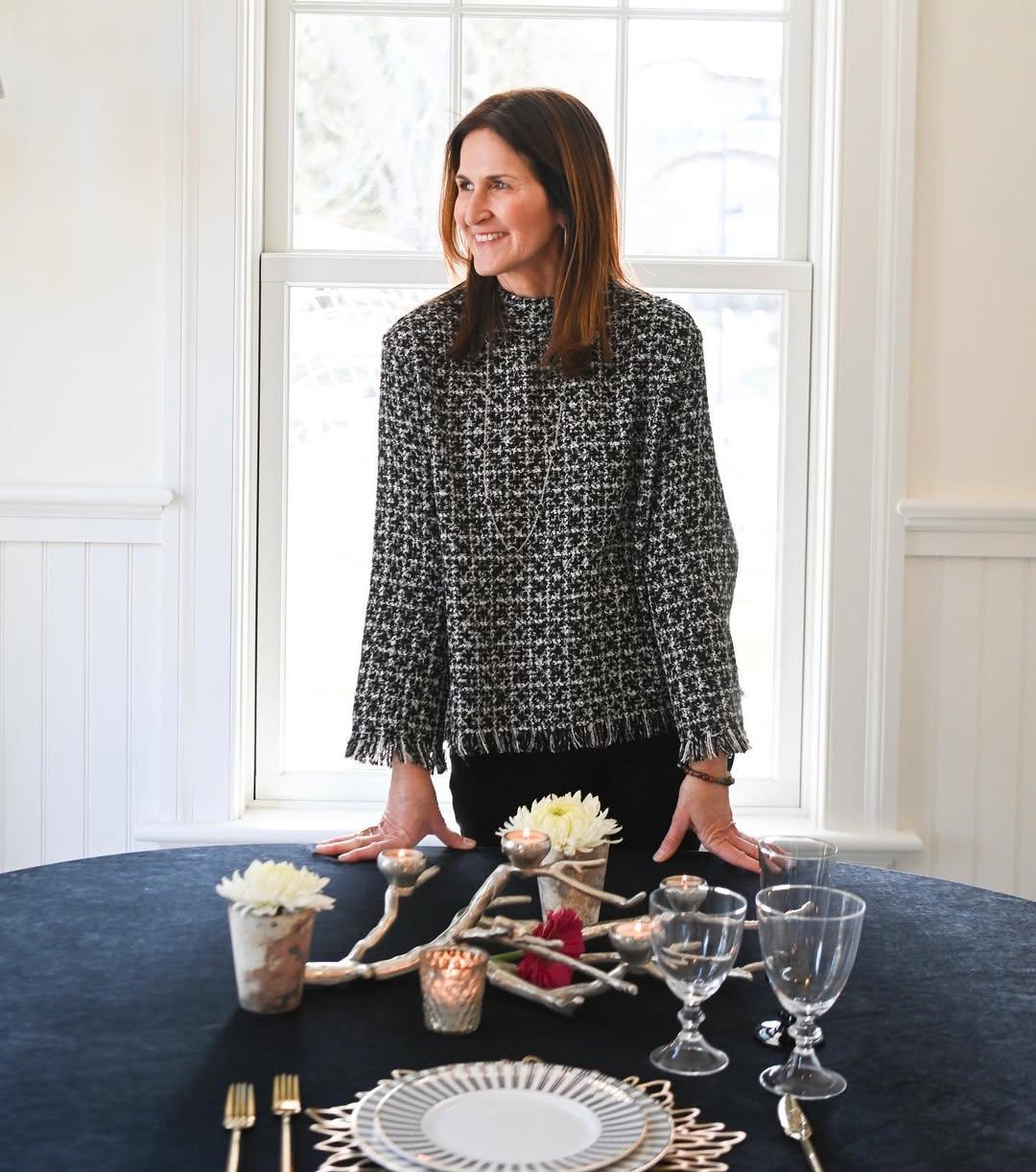
Marina Luri-Clark of Marina Luri Events specializes in transformations. She transforms vacant spaces into enchanting ballrooms, empty vases into breathtaking centerpieces, and moments into memories. With two decades of experience in event production and an impressive list of global contacts, it’s no wonder that Marina is one of the most celebrated wedding planners in the industry. To learn more about her brand and overall journey, I sat down with Marina.
You were raised in both New York and Geneva, Switzerland by your Italian parents. How do you feel that level of cultural and linguistic immersion has impacted your work as a luxury event planner and designer?
Well, I feel like it just enables me to be more open-minded and to understand different cultures and traditions. I always say, you know, having lived on both sides of the Atlantic and having had a European education, I understand Americans and I understand Europeans as well. So I think that’s a huge plus, especially when you’re working so closely with people. Whether it’s a corporate event or a wedding, it just helps in terms of having an easier work[ing] relationship. I’ll give you an example. Of course, for Italy — which is near and dear to my heart — they have a certain way of working, and the Americans have a certain way of working too. Everything is a little… approximate in Italy, and the Americans are very precise. So it’s helpful to have someone like me, or even the girls on my team who have also lived in both countries and speak multiple languages, to, you know, understand the other person and bridge that gap. When I was little, I always wanted to live and grow up in the same town and have the same friends. And now I’ve realized that it was such an advantage [to grow up how I did]. I’m so grateful that I had that opportunity.
I read that you had previously worked in both fashion public relations and marketing. What prompted your shift to event planning?
In public relations, you’re doing events all the time, because it’s part of publicizing your brand. So, I had been doing events all along. I just decided that I liked events and production. You know, we were doing a lot of fashion shows and store openings and things, and I just really liked the event portion of the job, so I transitioned over.
What does your process look like, from the moment that you’re approached about an event to the moment that the event is executed?
So, it’s different, whether you’re doing a birthday, a wedding, or a corporate event, but I think the approach is pretty similar. The first thing we do is, obviously, meet with the client and understand what their goals are. Even if you’re having a wedding, you do have goals. You want the guest experience to be a certain way or you have the vision of what you want your wedding to look like — that’s what I mean by goals. And for a corporate event, it might be something different. It might be, you know, an employee recognition event or a product launch. Everyone has different goals. So, the most important thing is to meet with your client and understand what their priorities are, what those goals are, and what their vision is. You know, I want to know how the couple met, what their likes and dislikes are. Because every event that we do, we want to be able to weave in a personal touch. And I always say, yes, we’re the ones designing it, and yes, we’re the ones that might be driving the ultimate look of the event. But the event is not mine. The event is the client’s event, and that’s really, really important for us.
And then the second thing is budget, because we cannot design without a budget. A couple of times we have tried, and it just never works. Because obviously, we’re creatives, and we’ve got really big ideas. We’re always looking to do a million different things, and the client might not be ready, willing, or able to spend a certain amount of money.
And then once we have those two things, we go about pulling different ideas, creating mood boards, and discussing with the client to see if they like the ideas or they like the design. Then we move forward with all of the vendors. And again, we give our clients options. We work very closely with them because the event is ultimately theirs. We are the producers, we are the magic makers, we are there for the guest experience. We bring our expertise and our contacts to help execute the event. But ultimately, I don’t want someone to walk in and say, “Okay, well, whose event is this?”
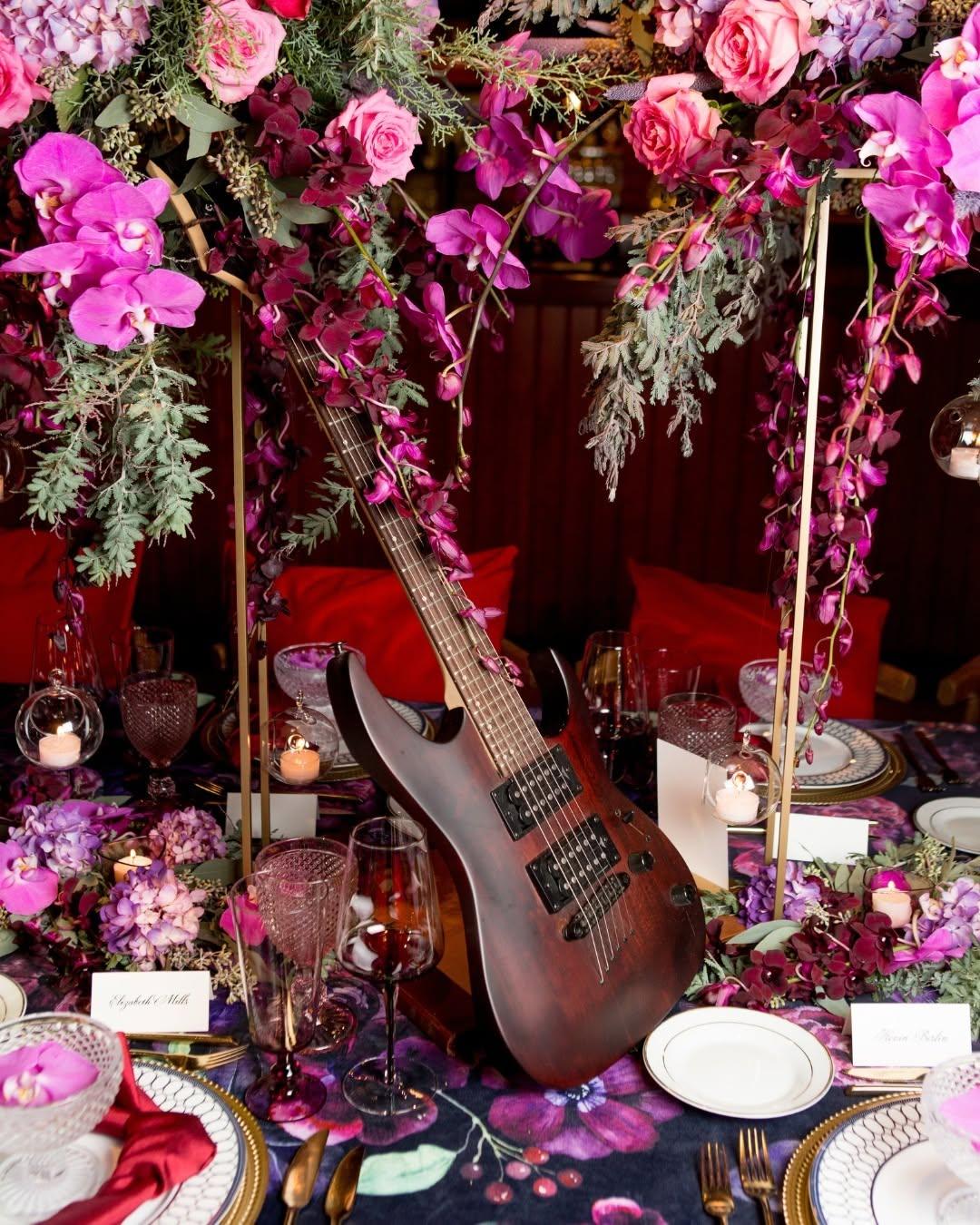
Your brand has locations in New York, Connecticut, and Milan. How do you navigate managing all three of those locations simultaneously?
The main office is in New York, here on Fifth Avenue and 27th Street. And then I have an office in Connecticut, which also is where the company is incorporated, because our warehouse is there. So, all of our rentals and things like that are in Connecticut. And then I have a business partner in Milan, Italy, and she manages that office. So that’s how we make it all work. But you know, since COVID, we can work anywhere!
How do you feel the brand has grown and evolved since it was founded in 2006 — or even since it was rebranded in 2011?
I mean, I think we’ve kind of stayed true to what we know best. There was a certain point where we tried to do a little bit of everything, and it didn’t really — it didn’t feel authentic, and it wasn’t the direction that I wanted the company to go in. And then I would say that, during COVID, we were able to take a breather and decide, you know, what do we do best and how should we develop that talent? I mean, the brand really is — we’re experts in culture, languages, and travel. We have contacts all over the world. We are truly international. Whether that’s an Italian coming to Hawai’i to get married or an American going to Italy, it’s what we do best. When you work with us, we’re not trekking 20 people from the United States [to your destination]. We have everybody on the ground. And if somebody wants to do a wedding, for example, in Malta, we have a great relationship with a person there who we would partner with. So I think those connections, those relationships, are what make it special and what we’re really all about.
What do you find to be the most challenging and the most rewarding aspects of planning and designing events?
I would say that the most challenging is navigating the different price increases we’ve had over the past few years and explaining that to clients who, you know, aren’t prepared for the kinds of prices that we’re seeing. Like, trying to explain to people, “Okay, this stool that we [used] two years ago was available for rent for $25, but now it’s $60 to rent.” Or, flowers that you were purchasing for this amount of money are now triple. And so, it’s just navigating how to bring value for your client and to the event while knowing that everybody has a budget. I mean, everyone has a budget. So I always ask, how do we find the most important things to this client?
And the most satisfying thing for me is when I see the client walk into the room and be completely surprised. Because I think, even if you do renderings and even if you do floor plans, it’s really difficult for the client to understand everything that goes into an event. It’s hard for them to imagine. I think about people who go and renovate their homes, right? They can have as many renderings as they want, but if they are not visual, they cannot imagine it until it’s done. And I just love it, you know? I love when they walk in and say, “Oh my god, I never, I never expected it to look like this!” To me, that is the greatest satisfaction.
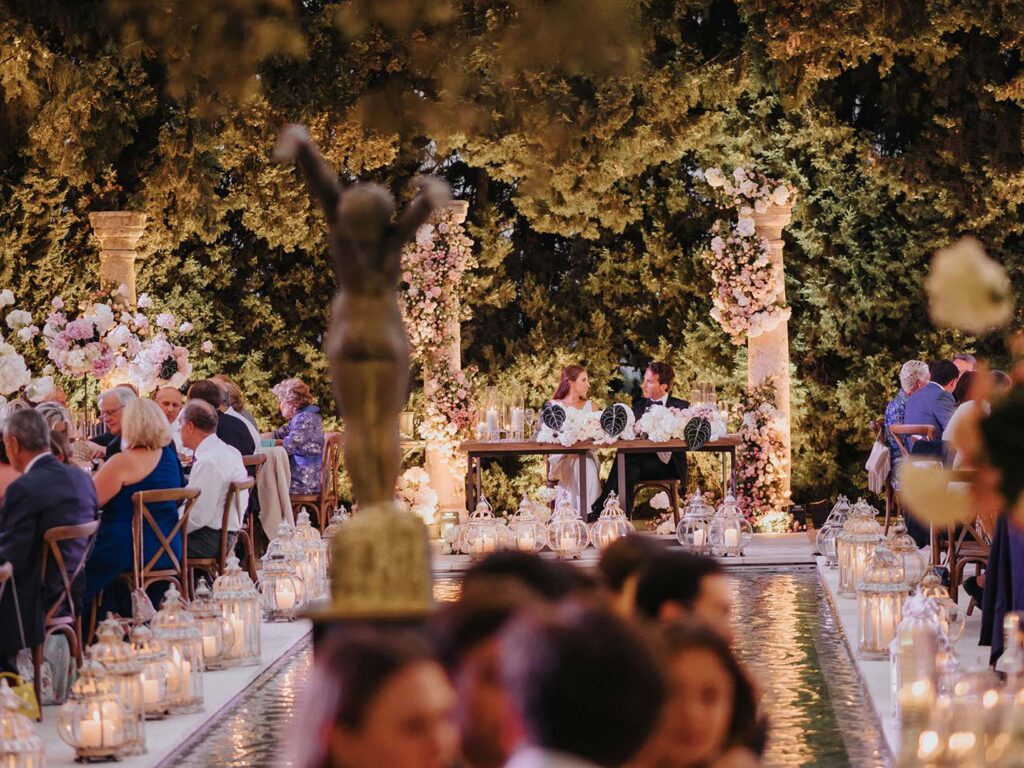
I saw many mentions, some in reviews from your past clients, of the stress-free environment you cultivate through your problem-solving skills on the day of an event. In what ways do you think that resourceful, problem-solving mindset is important to the work that you do?
I mean, I don’t think I’m unique. If you’re a good event planner, that’s the most important trait you need to have. That and being organized! We are problem solvers. Whether that’s finding something for the right price for the client or navigating if something goes wrong on the day of — because even if you’re planning really, really well, something can go wrong. So it’s about having Plan B, Plan C, and Plan D. It’s about having the contacts and the resources to be able to call somebody up last-minute and say, “I really need you to get over here. Can you do this for me?” And if you have those relationships and that experience and that longevity, those things happen. Someone who’s fairly new in the industry and doesn’t have those contacts might not be able to solve a problem so well.
In terms of just staying calm, cool, and collected, I think that comes with experience, but that’s also my personality. And that’s what I share with the people who work with me. [For example,] this just happened a couple of weeks ago. I did not have a good vibe from a vendor. I felt he was too hysterical, for lack of a better word. Like, everything was just too much. And I lost my deposit, but I decided not to work with that vendor. The culture that I cultivate and the people who I work with are super important. Things could go wrong and I don’t want the client to ever know. We take care of things, we repair them, and if it’s something that we really can’t take care of, then we talk to the client. We’re completely transparent and we say, “Hey, one of our vendors didn’t show up, this is how we’ve decided to handle the situation,” or “We’re going to refund your money,” or whatever it might be. But I feel like it’s about transparency, honesty, integrity, and keeping the situation calm… because otherwise, what’s the use? You just agitate everybody else. It’s the client’s day, and I want them to be happy and not have to worry about anything. That’s why they hired us.
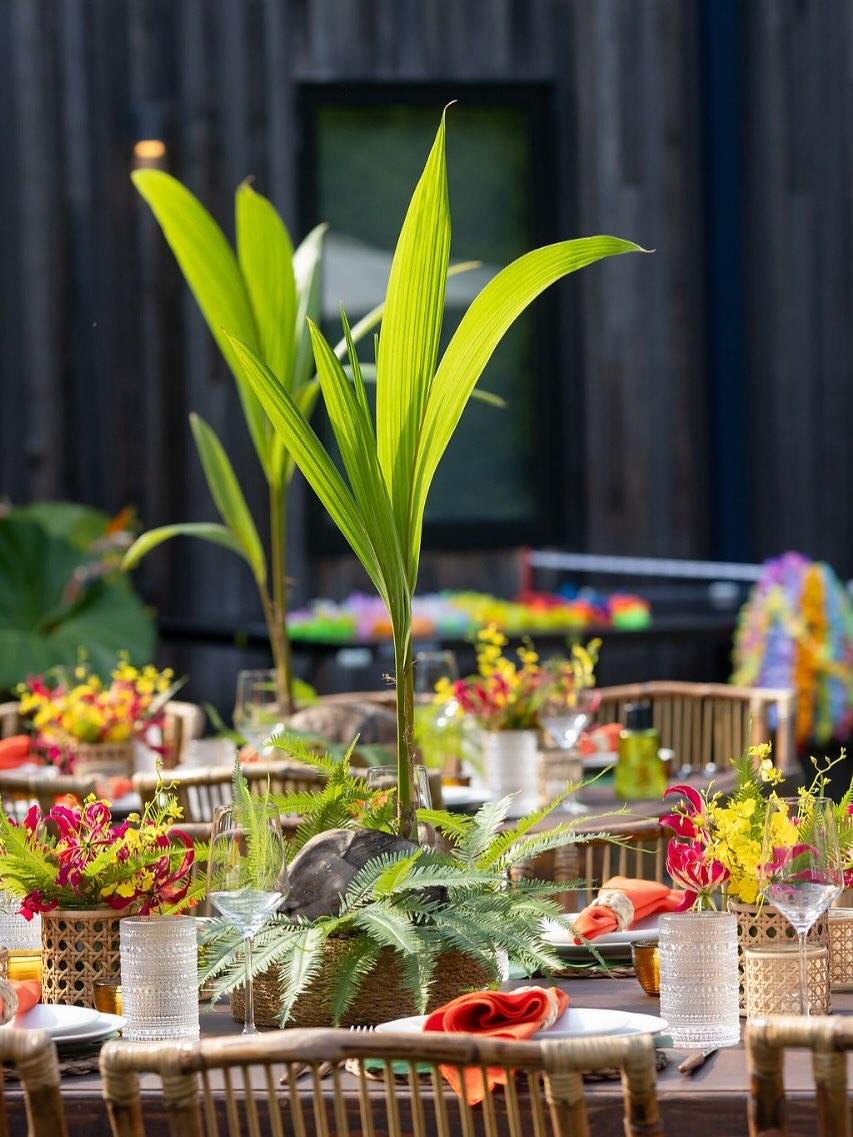
You often deal with high-profile clients and have mentioned the importance of discretion to your approach. Why is exercising discretion so crucial when working with these big-name clients?
I think that when you’re dealing with high-value individuals, you have to be discreet. You do. I mean, yes, there are some clients who want publicity, but that [still] doesn’t mean that you’re not going to be discreet. And there are a lot of clients, actually, who just don’t want pictures out there. They don’t want things all over social media. That’s more and more, to be honest. And we have to respect that.
And I think, just in general, we’re not super showy. I mean, obviously we love to show our work. We’re excited about it. But if a client says, “You cannot post this”, we will not post it, and that’s fine. I value the relationship and I value the privacy of the client.
And finally, what does the future of Marina Luri Events look like in your eyes?
We’re always talking about this. I mean, if you remain stagnant, ultimately you fizzle up and die. But I’m a very curious person, so I don’t see just one thing in particular. Personally, I would love to mentor younger people, you know, 10 years down the road. For the brand itself, I think we’re open to opportunities of all kinds. And there’s so much out there. There’s a new generation doing things in a different way. Every year I feel like I have a new company. Every year is a challenge. You know, I’ve kind of seen this trend over the past few years where it really is all about the guest experience, and about experiences in general. So we’re always looking for new caterers or entertainers who can provide a different experience, [the kinds of] things that evoke emotions in the guests who are attending. Whether that’s the gift that you’re giving, the food that they’re eating, the scent that’s in the space, the music, what’s on the table, whatever. I think all of that has really come into play over the last few years, but now more than ever. Because [,for example,] we have clients who decide to go take a trip with their best friends instead of having an event. And so the goal, for me, is to educate clients on [the fact that] an event can be an experience as well. You know, tomorrow’s not promised. And so when people hesitate, I always say to them, “Tomorrow’s not promised, why not invest in making memories today?”
So, the company is constantly evolving. We’re constantly looking for new experiences and new things to do, whether that’s in corporate or social. We’re working with travel agencies, working with PR companies, working with hotels — and always asking, what else can we weave into this experience?
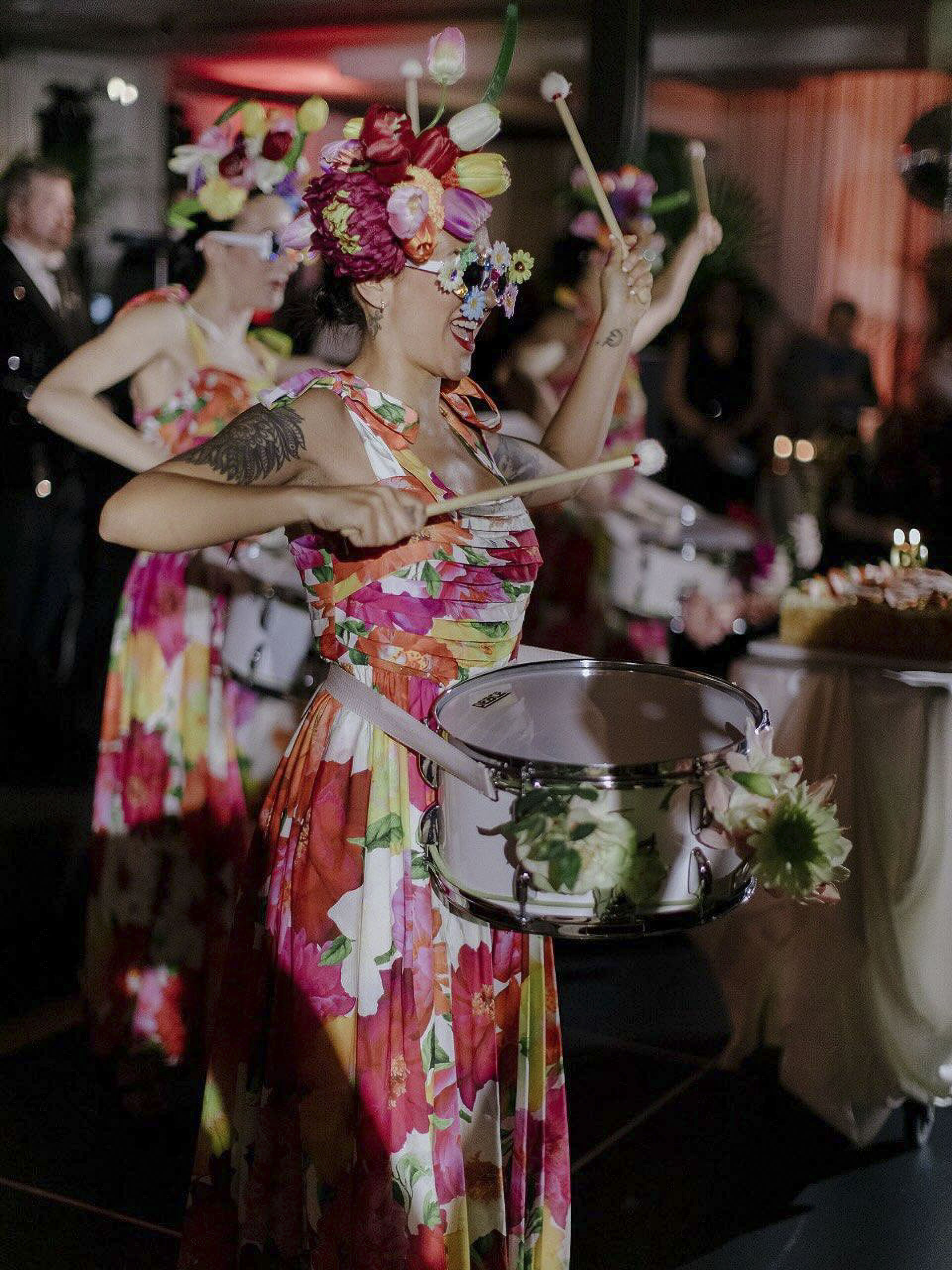
@thevowwhisperer
Crafting Heartfelt Words Into Unforgettable Memories
Serving in Destinations Around the World
Crafting Heartfelt Words
Into Unforgettable Memories
Serving in Destinations Around the World